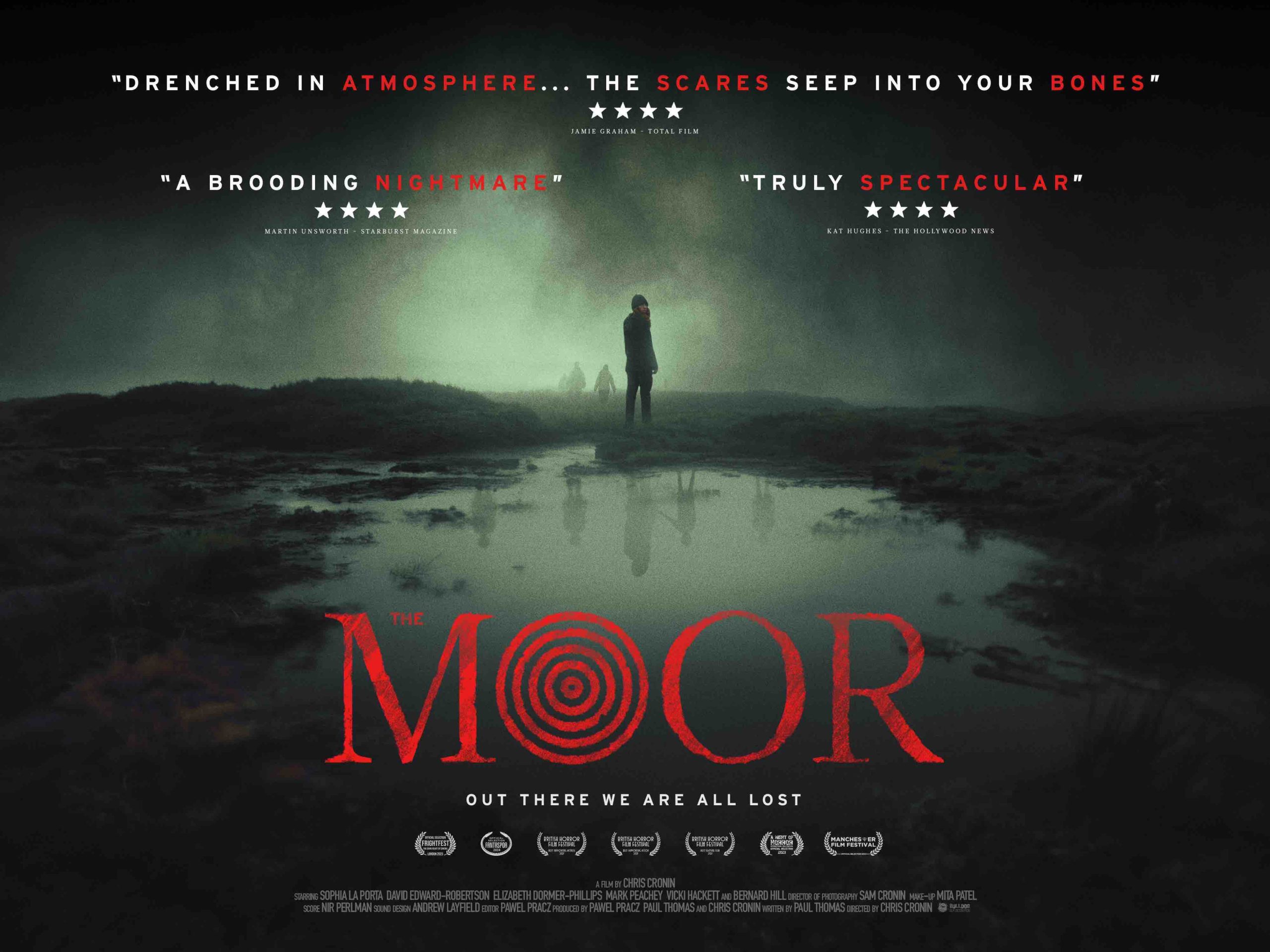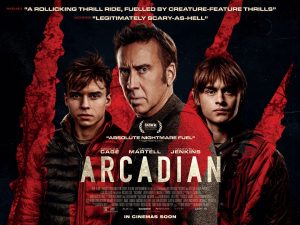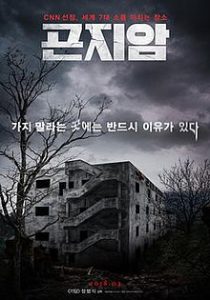

We were famously told to stay off the moors in 1981 and for good reason, and whilst Chris Cronin’s ‘The Moor’ perhaps doesn’t hold quite the same level of threat as Landis’s Werewolf, it’s still just as good advice now as it was then.
‘The Moor’ a (very) slow burn piece of horror creeps its way into cinema and digital this summer, and before even critiquing the main elements of the film, I will say one thing – horror seldom looks this good. I’ll accept there is something hauntingly beautiful about the northern Moors at the best of times, but in this flick each scene is so beautifully presented and graded, there are some shots that wouldn’t look out of place in a gallery.
The plot of the films opens in as a young girl and her young friend plot to steal sweets from a local corner shop. The plan is for the lad to go in claiming he’s lost, whilst she raids the confectionary. The only issue is, he never comes out. We learn that he isn’t the only one and that the local villages are tormented by a child killer who, even when captured, won’t give up all the details of his crimes.
With no bodies, he’s out in 25 years, and with no further leads, or bodies for that matter, it’s up to the father of one of the victims to tool up and head out onto the moorland in search of answers himself. Where the police followed due process to no avail, the desperate father seeks guidance from less conventional sources, however, the Moor isn’t quite ready to give up its secrets, either side of the veil.
The film builds tension well, and whilst the pacing is deliberately restraint there is plenty of life and vibrancy to the characters in contrast to the films mournful tone. The scripting is fairly standard, but it certainly does the job in ensuring that the films context remains grounded, and overall the tension and atmosphere builds somewhat organically. There is something very authentic about the cast’s performances.
Initially the Moorland is introduced as a bleak vast emptiness, and there’s a certain parallel between the impact that the murderous events must have had on the people and the communities. The quaint sleepy villages and salt of the earth characters offering up all the contrast needed to set up the moorland as an antagonist component, even before the supernatural stuff enters in the story in the film’s final third. As a folk horror it certainly knows how to get the most from its source material.
When things get more typically ‘scary’, I would say the film doesn’t fair quite as well, and whilst the somewhat bloated 2 hour run-time made sense when facilitating an almost tangible feeling of isolation and vulnerability, the more modern horror set pieces which finish off the films slightly disjointed ending serve to bring into question why such a long run-time was needed if the tension was going to break in such a crude and obvious manner.
Perhaps I am being a little too harsh, or perhaps I was just really enjoying being drawn into the films own haunting environments and story, but when one minute I’m being beckoned by a vast nothing and the next I’m transported onto the set of ‘The Conjuring’ I can’t help feeling a degree of confusion.
The films scares didn’t resonate with me at all, and it wasn’t because they weren’t well put together, because they absolutely were, or even because they were oddly spaced within the film’s runtime, it’s just that they really just felt like they’d been done before. Scenes where a medium becomes possessed in a séance wouldn’t be too bad if it wasn’t so close to a similar scene in a far more famous film, and even a scene with sheep possession seemed to draw more than a few similarities with Robert Egger’s ‘The Witch’.
I’d equally argue that the film does embed these themes within its own plot and lore and so don’t feel out of place, but considering the attention to detail and subtlety that made the rest of the film so uniquely beautiful I was left feeling a little flat after the films whirlwind ending.
Overall however, disappointment towards the end could only mean that I must have been really enjoying it up to that point, and as with all things, your milage may vary. There is a genuinely lingering sense of intrigue left from watching ‘The Moor’ and I would have liked it to have reached a conclusion based on its own folklore rather than having settled for the cliches.


